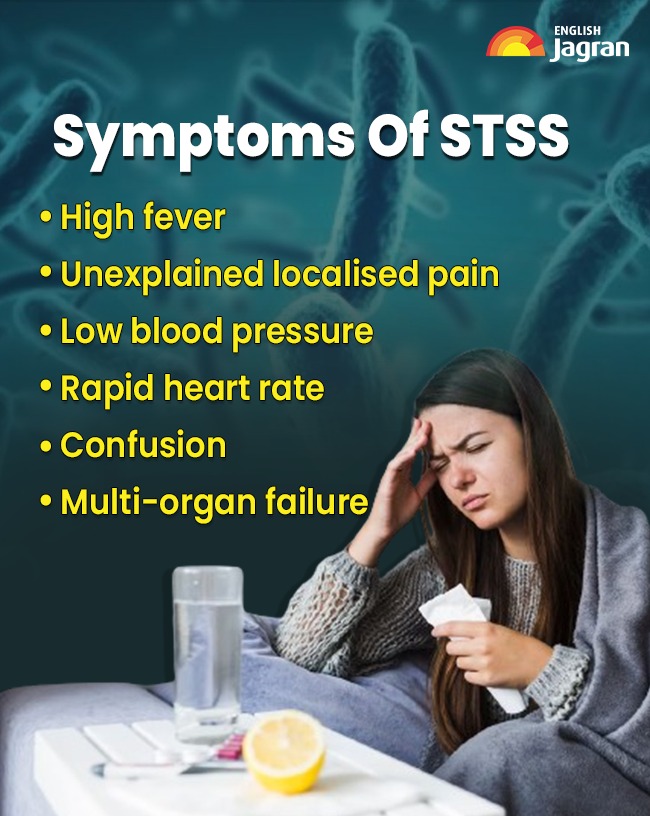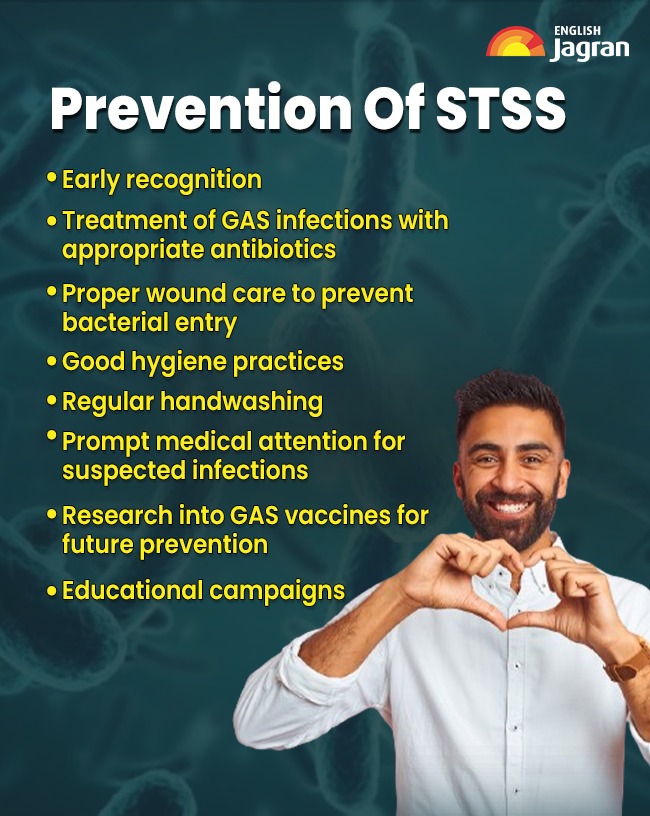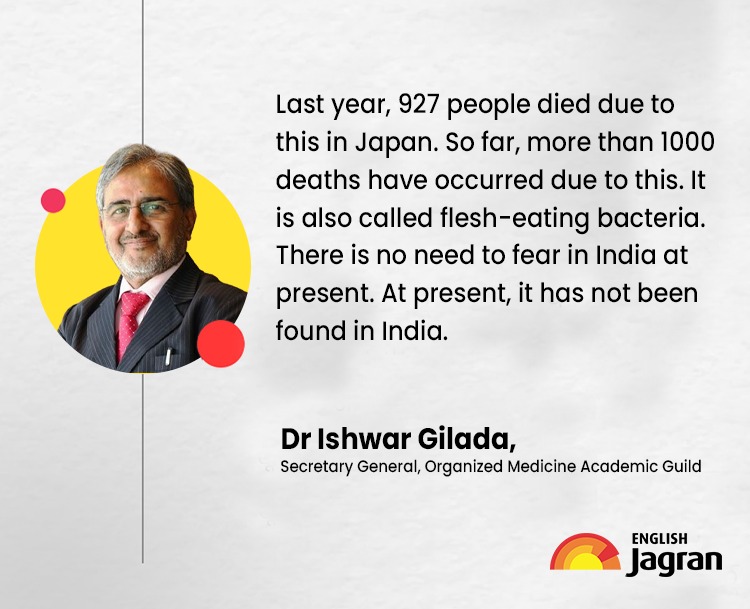- By Kamal Kumar
- Tue, 18 Jun 2024 05:24 PM (IST)
- Source:JND
Flesh-Eating Bacteria Japan: Japan is grappling with the sudden rise in the cases of Streptococcal Toxic Shock Syndrome (STSS), a fatal disease caused by a 'flesh-eating bacteria' belonging to the Group A Streptococcus (GAS) family. Till June 2, 2024, the east-Asian nation has witnessed 977 cases of the STSS disease, a sharp uptick from last year's total of 941 cases. The steep rise in cases has prompted the Japanese government to put its health officials on high alert as the 'flesh-eating bacteria' disease has a high mortality rate of 30 per cent and can cause death within 48 hours of the incidence.
Hong Kong has issued an advisory to its citizens travelling to Japan to follow high standards of personal hygiene and to seek medical help for any abrupt body pain or fever. Although no case of STSS has been yet discovered in India, the possibility can't be denied given the high global passenger exchange daily.
What is Streptococcal Toxic Shock Syndrome (STSS)?
Streptococcal Toxic Shock Syndrome or 'Flesh-Eating Bacteria' disease is a 'rare but serious infection' caused by the Group A Streptococcus (GAS) bacteria. The GAS bacteria releases harmful toxins into the bloodstream, causing a rapid and severe immune response, Dr Neha Rastogi Panda, Consultant-Infectious Diseases, Fortis Memorial Research Institute, Gurugram told Jagran. According to Dr Shrey Srivastava, General Physician at Sharda Hospital, these bacteria spread through respiratory droplets or direct contact.
ALSO READ: Deadly 'Flesh-Eating Bacteria' Which Can Kill In 48 Hours Spreading Across Japan | Check Symptoms
The GAS bacteria is a gram-positive bacteria, which is commonly found in the human body - in the throat or on the skin. This bacteria can cause illnesses from mild infections such as strep throat and impetigo to severe diseases such as necrotizing fasciitis and STSS.
How are STSS and the presence of GAS bacteria diagnosed?
It is diagnosed through rapid antigen detection tests (RADT) or throat cultures, which identify the presence of the bacteria in the throat or other infected sites. Blood or tissue cultures are used to confirm severe infections like Streptococcal Toxic Shock Syndrome (STSS), Dr Panda said.
Symptoms Of STSS Disease
In some cases, the Flesh-eating bacteria, GAS, releases toxins in the human bloodstream, causing a rapid and severe immune system response - leading to symptoms such as fever, low blood pressure, organ failure and shock. Sometimes, severe localized pain indicative of necrotizing fasciitis can be witnessed in GAS infection cases. If not treated timely, the symptoms can intensify and lead to a painful death within a very short frame of time.

Prevention Of STSS Disease
According to Dr Neha Rastogi Panda, prevention strategies for STSS 'involve good hygiene practices like regular handwashing, covering the mouth and nose when coughing or sneezing, and promptly treating wounds. Early medical intervention is crucial for managing symptoms and preventing severe complications.'
Dr Shrey Srivastava, a leading medical practitioner at Sharda Hospital also emphasises the "ongoing vaccine research, and enhancing public and healthcare provider awareness to facilitate early diagnosis and intervention."

STSS Disease: Should Indians Worry?
Although no case of 'flesh-eating bacteria' disease has been diagnosed in India so far, doctors advise following pandemic SOPs. Dr Ishwar Gilada, Secretary General of, the Organized Medicine Academic Guild, simplified the disease and its prognosis in a conversation with Jagran. He further said that there is no need to fear because there are no reported cases thus far in India.

"There is no need to fear in India at present. At present, it has not been found in India," Dr Gilada said.

